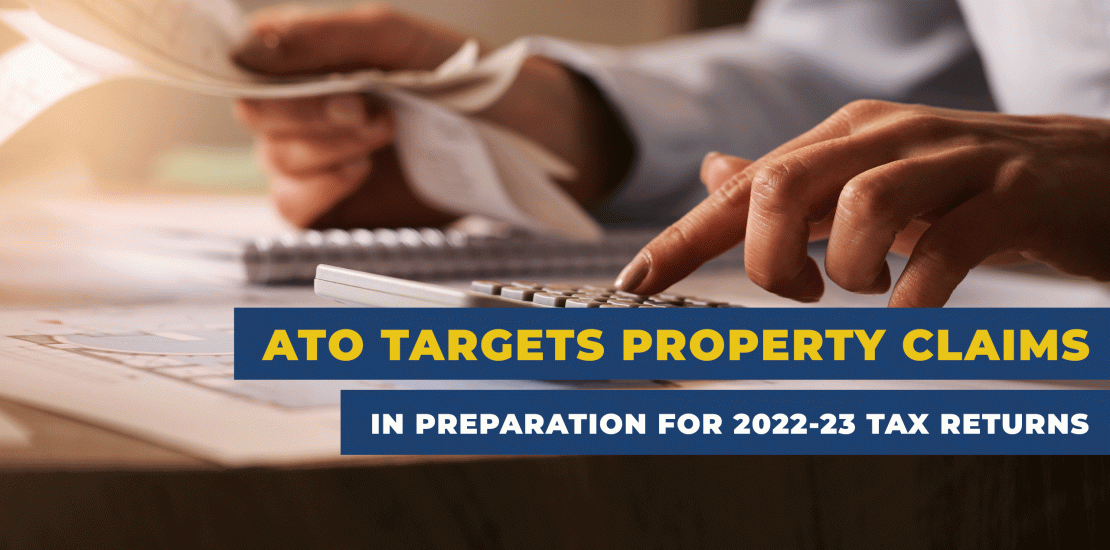- June 7, 2023
- Posted by: mararting
- Category: Property

The Australian Taxation Office (ATO) has identified property claims as a major focus area for the upcoming 2022-23 tax returns. An ATO review of income tax returns has revealed that approximately nine out of ten rental property owners are making errors in their returns. This year, the ATO is also paying close attention to SMSF returns and crypto transactions.
Assistant Commissioner Tim Loh has emphasized that these areas are prioritized due to the common mistakes observed. Rental property owners often overlook rental income or make errors when claiming property-related deductions, such as overclaiming expenses or incorrectly including improvements made to personal properties.
Loh advises rental property owners and their registered tax agents to exercise extra caution during the tax season and thoroughly review their records before submitting their returns.
The ATO estimates a shortfall of around $9 billion in individual tax collection for the 2019-20 fiscal year, indicating that taxpayers paid only 94.4% of their total theoretical tax obligations.

Interest expenses are a particular focus for the ATO, which aims to ensure that rental property owners understand how to correctly allocate loan interest expenses, especially when part of the loan was used for private purposes or when the loan was refinanced for such purposes.
To verify taxpayers’ figures, the ATO utilizes sophisticated data matching capabilities, including rental property-related data. Additionally, a new data matching program for residential investment property loans has been recently implemented.
Regarding capital gains tax (CGT), Loh explains that while the main residence is generally exempt, if individuals have used their homes to generate income, such as through home-sharing platforms or running businesses from home, CGT may apply.
H&R Block reports that the ATO has established a data-matching agreement with 17 major mortgage lenders. Under this agreement, lenders will provide extensive financial information on taxpayers, allowing the ATO to cross-check the information provided on individual tax returns.
H&R Block highlights several areas of concern, including excessive interest expense claims, incorrect apportionment of rental income and expenses between joint owners, and claiming deductions for holiday homes that are not genuinely available for rent. It is essential for property owners to maintain thorough records, including invoices, receipts, bank statements, and evidence of rental property availability.
The ATO also urges self-managed superannuation funds (SMSFs) to be vigilant. The Class Annual Benchmark Report for 2022 reveals a significant increase in newly established SMSFs failing to lodge their first return, which may indicate potential illegal early release of funds.
Furthermore, the ATO is targeting digital assets, including cryptocurrencies and non-fungible tokens (NFTs). Cryptocurrency is treated as a capital gains tax asset, and the ATO uses data from coin trading platforms to identify discrepancies between taxpayers’ returns and its own information, focusing particularly on capital gains.
When disposing of assets such as shares, cryptocurrencies, managed investments, or properties, taxpayers are reminded of their obligation to calculate capital gains or losses for each asset unless an exemption applies. Loh warns against assuming that the ATO will not notice the sale of assets for gains that are not declared, emphasizing the importance of meeting tax obligations accurately.
